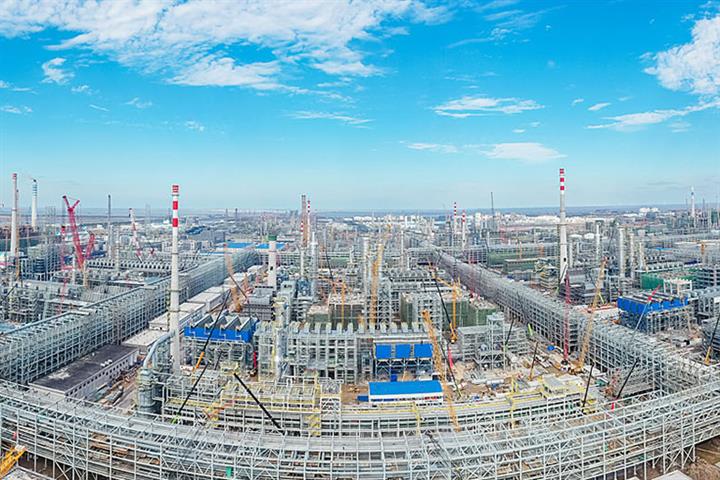 China’s Shenghong Climbs on USD4 Billion Plan to Boost New Materials Capacity
China’s Shenghong Climbs on USD4 Billion Plan to Boost New Materials Capacity(Yicai Global) Nov. 30 -- Shares in Eastern Shenghong gained as much as 3 percent today after the Chinese supplier of petrochemical and chemical fiber products said it will invest CNY28.4 billion (USD4 billion) in two projects that will supply the raw materials used in the batteries of electric cars and in solar cells.
Shenghong’s stock price [SHE:000301] dipped 0.6 percent to close at CNY13.28 (USD1.86). Earlier in the day it hit CNY13.78.
One of the new facilities, costing CNY18.9 billion (USD2.6 billion), will be based in Yichang, central Hubei province, with an annual production capacity of 300,000 tons of lithium iron phosphate and other materials, Suzhou, eastern Jiangsu province-based Shenghong said yesterday. Lithium iron phosphate is a key material used to make electric vehicle batteries.
The project will help Shenghong, which already has strong phosphate resources in the area and the technological know-how needed to produce phosphorus chemicals, become a supplier of battery raw materials, it said. The factory is expected to generate CNY3.4 billion (USD475.8 million) in profit and CNY56.1 billion (USD7.9 billion) in revenue a year.
The other plant, costing CNY9.7 billion (USD1.4 billion), will be located in Lianyungang, Jiangsu province close to Shenghong’s main petrochemical production base and will have a yearly output of 300,000 tons of polyolefin elastomers and other petrochemical materials, Shenghong said in a separate statement yesterday.
Polyolefin elastomer’s special molecular structure gives it the properties of both synthetic resin and rubber and it is used as an encapsulation material in high-end photovoltaic cells.
The project will enable Shenghong to achieve independent production of high-end petrochemical products and is expected to bring in CNY1.7 billion (USD239.4 million) of profit and CNY13.6 billion of revenue a year, it said.
The investment for the Yichang project will be made through a subsidiary, Hubei Haigu New Energy, in which Shenghong indirectly holds a 90 percent stake. While the funds for the Lianyungang project will be channeled through another unit, Jiangsu Shengjing New Material, in which it indirectly owns 65 percent equity. Both facilities should be ready in two years’ time.
China’s polyolefin elastomer market used to be monopolized by multinationals. But this year, a number of Chinese petrochemical firms said they are starting their own production lines after mastering core technologies. For example, Wanhua Chemical said in August that it will build a large petrochemical project with an annual capacity of 400,000 tons of polyolefin elastomers.
Editor: Kim Taylor